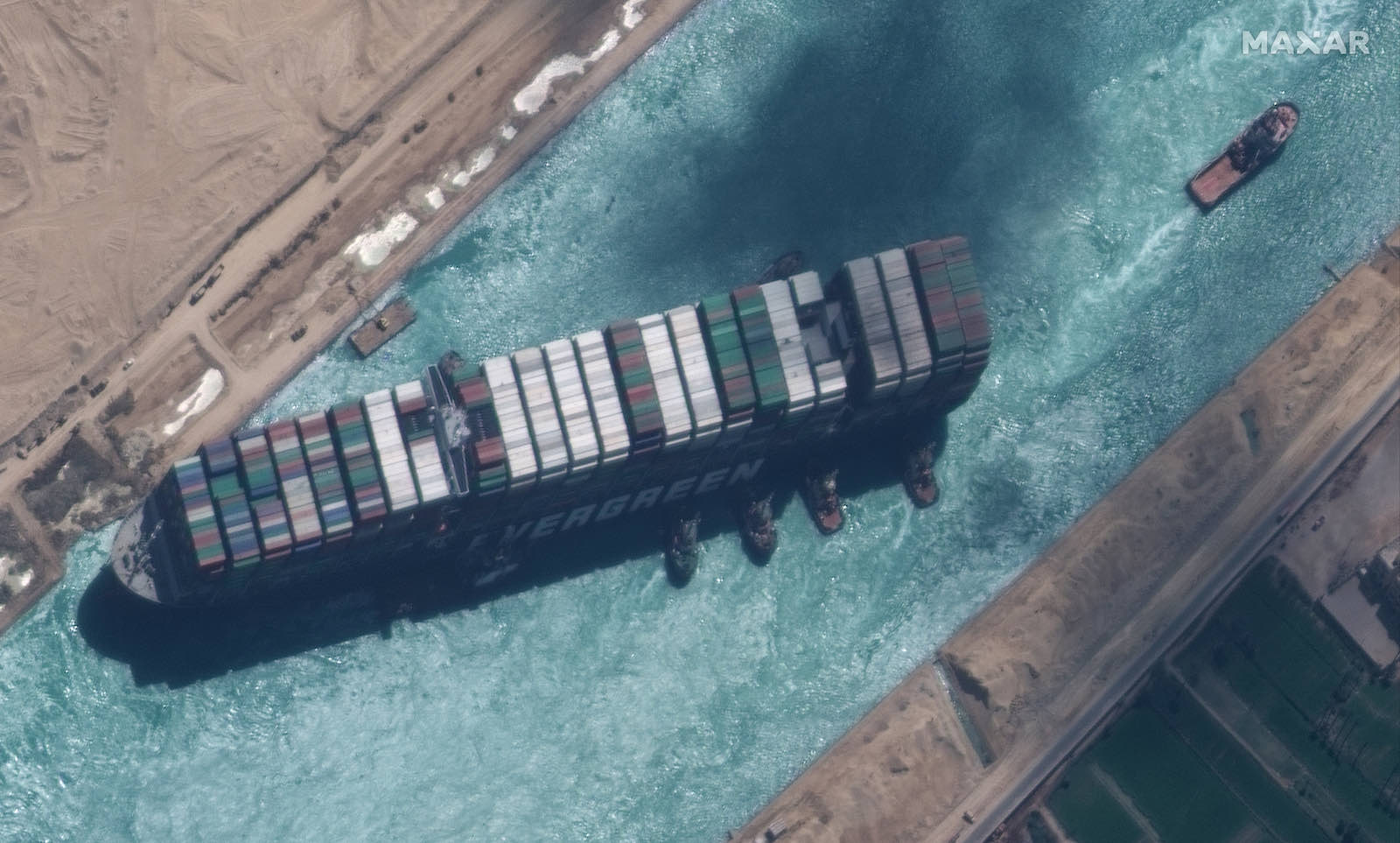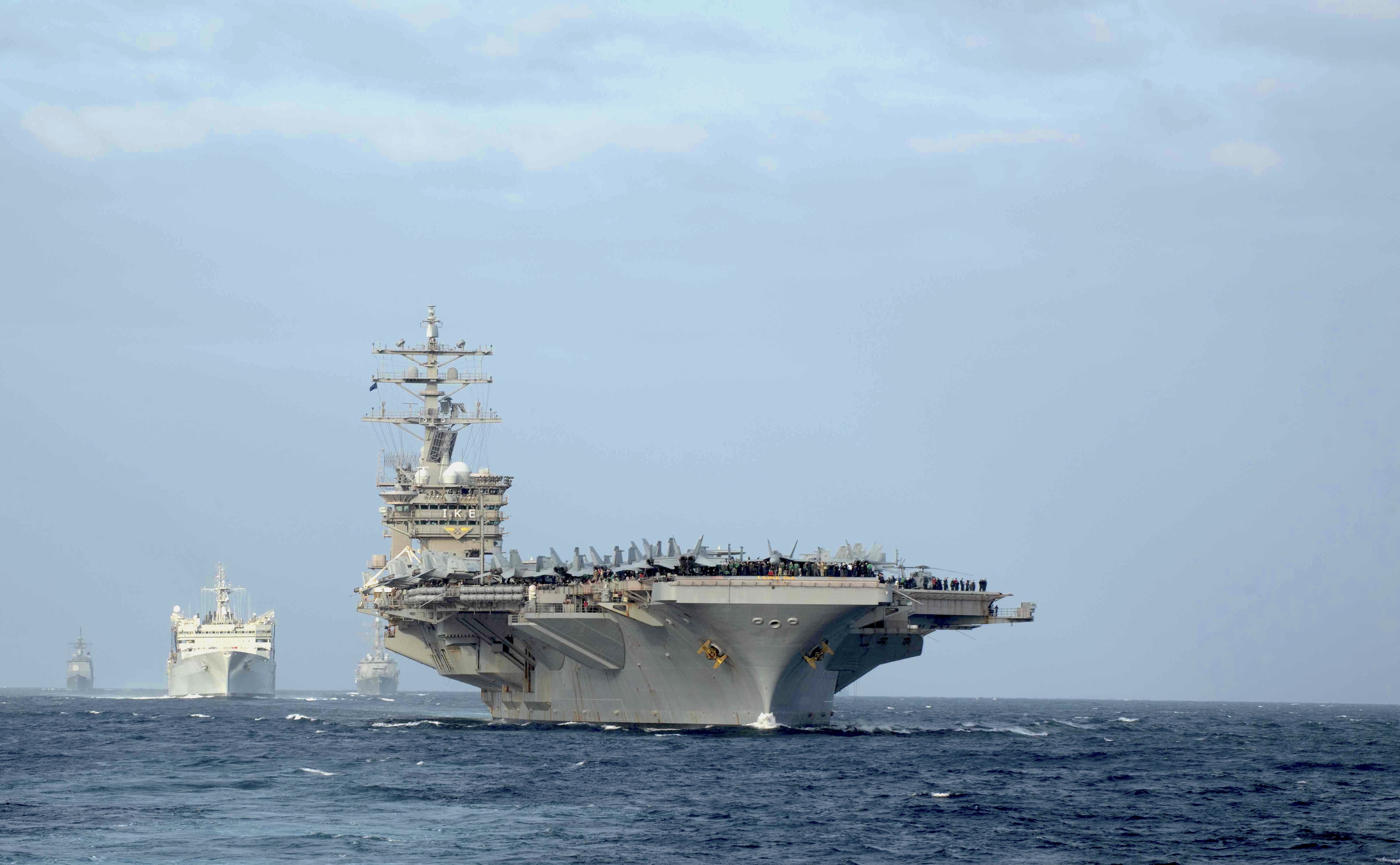
After a container ship twice as heavy as a Ford-class carrier halted traffic through the Suez Canal for nearly a week, the Defense Department emphasized that it prepares for this type of scenario.
During a Monday press briefing, Pentagon spokesman John Kirby said he could not discuss details on how container ship Ever Given‘s canal blockage impacted U.S. operations in the region.
“I think as you know though in any circumstance around the world, the U.S. military has . . . at its disposal any number of alternate ways of achieving mission success and meeting our mission requirements,” Kirby told reporters.
“Without speaking to it specifically, this is something that all our combatant commanders take seriously, none any more than [U.S. Central Command Commander] General [Frank] McKenzie, in terms of making sure we have the ability to continue to meet mission requirements,” he added.
The Navy also refused to discuss the operational effects of the canal logjam, but said it had other ways of assisting U.S. Central Command in the Middle East.
“We are not going to talk about specific operational impacts. The Suez Canal is an essential maritime chokepoint, and the longer passage is suspended, the more impact it will have to civilian and military transits,” Cmdr. Rebecca Rebarich, a spokeswoman for U.S. 5th Fleet, told USNI News in a Saturday statement. “However, we have alternate capabilities to mitigate impact and support to our operations in U.S. Central Command’s area of responsibility throughout any extended blockage.”
Passage through the Suez is routine for East Coast carrier strike groups as a route to enter U.S. 5th Fleet and CENTCOM. The Eisenhower Carrier Strike Group is operating in the Eastern Mediterranean Sea and is expected to transit the Suez in the near future, USNI News understands.

When asked if the blockage caused the Pentagon to reassess how it operates in the region, Kirby reiterated that the Defense Department has contingency plans.
“They’re called chokepoints for a reason . . . and the Suez Canal isn’t the only one around the world. And because we’ve long recognized the fact that narrow waterways like this are maritime chokepoints, we always make sure that we have alternate capabilities to meet mission requirements,” Kirby said.
“I wouldn’t go so far as to say the Suez blockage has caused us to rethink anything about how we are postured in the Middle East or how we meet mission requirements there or national security interests there,” he continued. “We have recognized the fact that chokepoints like the Suez Canal could suffer blockages like this and it’s factored into just normal operational planning.”
Reuters reported on Monday that Ever Given had been dislodged after a logjam of over 400 vessels were delayed from transiting the Suez Canal due to the container ship’s blockage. For ships trying to reach Europe or the United States, an alternative route would have required them to sail around the Cape of Good Hope at the bottom of South Africa.
At the briefing, Kirby praised Egyptian officials for working to free Ever Given, but said officials would likely need to evaluate if the blockage had any other effects on the rest of the Suez Canal.
“I think there’s still some assessing they have to do to – because it’s not just about the ship blocking it, but now the bottom of the canal needs to be I think looked at too to make sure that it is still safe for passage,” Kirby said.
Osama Rabie, the chairman of the Suez Canal Authority, said the 422 vessels halted due to the blockage may move through the canal within 3.5 days, according to a Reuters report.
Rabie also reportedly said to Egypt’s state-run Nile TV that officials had inspected the bottom of the canal.
“The ship came out intact and it has no problems. We’ve just searched the bottom and soil of the Suez Canal and thankfully it is sound and has no issues, and ships will pass through it today,” Rabie said, as reported by Reuters.





